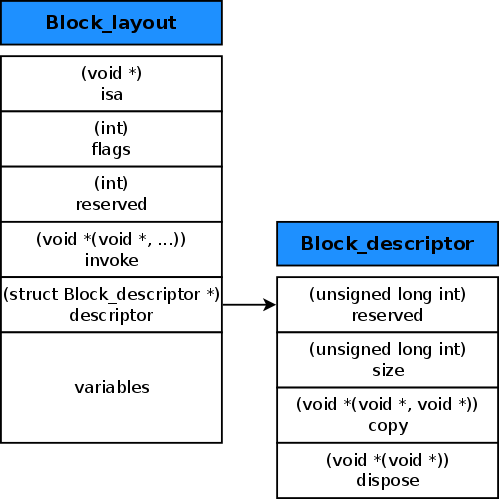- ios GCD
_Waiting_
1.GCD任务和队列学习GCD之前,先来了解GCD中两个核心概念:任务和队列。任务:就是执行操作的意思,换句话说就是你在线程中执行的那段代码。在GCD中是放在block中的。执行任务有两种方式:同步执行(sync)和异步执行(async)。两者的主要区别是:是否等待队列的任务执行结束,以及是否具备开启新线程的能力。同步执行(sync):同步添加任务到指定的队列中,在添加的任务执行结束之前,会一直等
- DVBS 卫星波段 设置
晨春计
TVAndroidTVandroid
目录背景DVBS介绍LNB(LowNoiseBlock)LNBC(LowNoiseBlockController)Tuner接收频率范围卫星波段范围卫星波段降频Ku波段降频C波段降频码流机和DVBS菜单设置背景不经常使用DVBS频率设置,容易忘记,整理如下。DVBS介绍在DVBS/S2信号通过同轴线进入电视/机顶盒的同时,LNBC会通过同轴线向外输出0/22K,13V/18V等信号,以控制LNB的
- 洛谷P2865 [USACO06NOV] Roadblocks G【C++解法】【次短路问题】
#Dong#
c++算法数据结构图论
/*求次短路问题【spfa解法】本题思路:1.用spfa做,用d1记录从1到n所有点距离点1的最短距离,用d2记录从n到1所有点距离点n的最短距离那么此时d1[n]即为1到n点的最短距离2.遍历每个顶点x,找到它们所指向的点y,利用d1[x](x距离1的最短距离)+d2[y](y距·离n的最短距离)+w[i](x和y的边的权值)因为次短路一定严格大于最短路,而且又是除了最短路以外最小的那个,所以利
- P2865 [USACO06NOV] Roadblocks G(洛谷)(次短路)
叶子清不青
算法
开一个二维数组dis[N][2]分别记录最短路和次短路即可。dijkstra和spfa均可,推荐spfa。//dijkstra#includeusingnamespacestd;constintN=1e5+5;typedeflonglongll;typedefpairPII;intn,m,k;intT;priority_queue,greater>q;structnode{inte,w;};vec
- P2865 [USACO06NOV]路障Roadblocks
dianshu0741
次短路模板题吧题意已经非常裸了:求无向图的1到n次短路。直接套用最短路(dijkstra)的主要框架。但在这个的基础上添加另外一个数组dist2。走到一条边的时候来三个判定:dist[u]+weightdist[v]&&dist[u]+weightrhs.d;}};voidlink(intu,intv,intw){e[++tot]=(Edges){head[u],v,w};head[u]=tot;
- html ul点击删除,用原生实现点击删除点击的li
weixin_39993454
htmlul点击删除
简单的实现方式#button{display:inline-block;}ul{list-style:none;}li{background-color:red;display:inline-block;width:20px;padding:10px;margin-left:3px;color:white;}window.onload=function(){varoBtn1=document.ge
- 区块链私有链new
qis_qis
区块链区块链以太坊数字货币
{“config”:{“chainld”:666,“homesteadBlock”:0,“eip150Block”:0,“eip150Hash”:“0x0000000000000000000000000000000000000000000000000000000000000000”,“eip155Block”:0,“eip158Block”:0,“byzantiumBlock”:0,“consta
- 区块链私有链
qis_qis
区块链区块链以太坊数字货币
{"config":{"chainld":666,"homesteadBlock":0,"eip150Block":0,"eip150Hash":"0x0000000000000000000000000000000000000000000000000000000000000000","eip155Block":0,"eip158Block":0,"byzantiumBlock":0,"consta
- PCIe进阶之Gen3 Physical Layer Transmit Logic(二)
芯芯之火,可以燎原
PCIe进阶硬件工程信息与通信
1文章概述本文是接着上面一篇文章《Gen3PhysicalLayerTransmitLogic(一)》继续对Gen3PhysicalLayerTransmitLogic做进一步的解析,具体包含ByteStriping和Scrambling以及Serializer。1.1ByteStripingGen3x1OrderedSetConstruction如下所示:OrderedSetBlock由一个Sy
- css鼠标移上去向上移动,css3鼠标移动图片上移效果
yo xiba
css鼠标移上去向上移动
css3的功能真是很强大,学无止境,不多说,直接上代码css部分:*{margin:;padding:;}.text-center{text-align:center}.col_cont{width:300px;height:300px;margin:auto}.thumbnail{cursor:pointer;text-decoration:none;display:block;padding:
- CSS截取字符串,多余文字用省略号显示
这真的是一个帅气的名字
line-height:30px;text-align:center;text-overflow:ellipsis;/*让超出的用...实现*/white-space:nowrap;/*禁止换行*/overflow:hidden;/*超出的隐藏*/display:block;多行:border:1pxsolid#ddd;width:200px;word-break:break-all;text-o
- java基础-线程间通信方式
问道飞鱼
Java开发技术java开发语言
文章目录1.wait()和notify()2.volatile关键字3.Java.util.concurrent包提供的工具类Semaphore(信号量)BlockingQueue(阻塞队列)4.Atomic类在Java中,线程间的通信是非常重要的,尤其是在多线程编程中,它有助于协调线程的行为,确保资源的正确访问和更新。Java提供了多种方式来实现线程间的通信,主要包括以下几种方法:1.wait(
- RACCommand
frankisbaby
RACCommand:RAC中用于处理事件的类,可以把事件如何处理,事件中的数据如何传递包装到这个类中,它可以很方便的监控事件的执行过程。使用场景:监听按钮点击事件,网络请求;使用步骤:1.创建命令:RACCommand不能返回一个空的信号:RACCommand*command=[[RACCommandalloc]initWithSignalBlock:^RACSignal*_Nonnull(id
- YOLOV8改进-C2f添加Deformable Conv V2
森爱。
YOLOV8改进YOLO
目录1DeformableConvV2介绍2YOLOV8添加DeformableConvV22.1代码添加到Blocks2.1.1C2f_DCN代码2.1.2加入_all_导入2.1.3加入modules导入2.2添加至运行模块tasks2.2.1导入包2.2.2解析参数添加2.3在_init_中增加名称2.4模型配置文件yaml替换1DeformableConvV2介绍论文地址:https://
- Hadoop学习第三课(HDFS架构--读、写流程)
小小程序员呀~
数据库hadoop架构bigdata
1.块概念举例1:一桶水1000ml,瓶子的规格100ml=>需要10个瓶子装完一桶水1010ml,瓶子的规格100ml=>需要11个瓶子装完一桶水1010ml,瓶子的规格200ml=>需要6个瓶子装完块的大小规格,只要是需要存储,哪怕一点点,也是要占用一个块的块大小的参数:dfs.blocksize官方默认的大小为128M官网:https://hadoop.apache.org/docs/r3.
- html5carousel图片轮播,全面解析Bootstrap中Carousel轮播的使用方法
RemusrickCat
本文实例为大家全面的解析了Bootstrap中Carousel的使用方法,供大家参考,具体内容如下源码文件:Carousel.scssCarousel.js实现原理:隐藏所有要显示的元素,然后指定当前要显示的为block,宽、高自适应源码分析:1、Html结构:主要分为以四个部分1.1、容器:最外层div,需要一个data-ride=”carousel”来指定为轮播放插件,并且提供一个Id,方便圆
- LinkedBlockingQueue比BlockingQueue吞吐量高的原因?
代码哲学
java
目录1.首先吞吐量是什么?如何衡量程序的吞吐量?2.LinkedBlockingQueue吞吐量高的原因?1.首先吞吐量是什么?如何衡量程序的吞吐量?吞吐量是指在一定时间内系统或程序处理的任务数量或数据量。在计算机领域,吞吐量通常用来衡量系统、程序或设备在单位时间内处理的工作量或数据量,是评估系统性能的重要性能之一。可以从吞吐量通常可以通过以下方式进行衡量:任务完成数量:单位时间内完成的任务数量来
- 如何在 KubeBlocks 中配置实例模板?
小猿姐
kubernetes数据库云原生mysql
背景在KubeBlocks中,一个Cluster由若干个Component组成,一个Component最终管理若干Pod和其它对象。在0.9版本之前,这些Pod是从同一个PodTemplate渲染出来的(该PodTemplate在ClusterDefinition或ComponentDefinition中定义)。这样的设计不能满足如下需求:对于从同一个Add-on中渲染出来的Cluster,为其设
- CUDA 编程入门(2):CUDA 调度模型
知识搬运工人
CUDAGPUCUDA
参考:CUDA编程入门(2):CUDA编程模型-知乎(zhihu.com)CUDA调度模型Block调度Block对应的物理硬件概念是SM,也就是说SM负责block中线程的执行,SM会为每个block分配需求的资源,比如寄存器,共享内存等,由于SM自身资源有限,因此它被分配到的block数量也是有限的,这取决于block中线程的资源需求。当所有的SM都饱和之后,剩下的blocks将会被暂时挂起,
- OpenStack添加新硬盘到LVM逻辑卷组
LianZhenLiang
参考:CinderLVM配置https://www.cnblogs.com/sammyliu/p/4159147.htmlConfigureandusevolumenumberweigherhttps://docs.openstack.org/cinder/queens/admin/blockstorage-volume-number-weigher.html一、知识:cinderlvm配置(/e
- k8s防火墙networkPolicy,其他规则和端口规则ports的匹配顺序,进站策略ingress和出站策略egress中,ports规则的常用方法。
技术服务于生态
kubernetes服务器linux
端口策略和其他策略的顺序关系是什么一共四个策略ipBlockpodSelectornamespaceSlector------------------portsports这个策略,和前面三个不同什么不同匹配顺序不同在网络通信OSI七层模型中一个数据包从A到BB接收到数据包是先看ip选择是否接收如果接收才会拆包看ip报文里面封装的TCP/UDP报文中的端口号如果不接收,就不会有检测端口号的操作,因为
- 用JavaScript写一个简单的9*9乘法表
迷雾yx
javascript开发语言ecmascript
Documentspan{width:80px;padding:5px10px;display:inline-block;/*可以使行内元素表现得像块级元素一样*/text-align:center;/*文本居中*/border:1pxsolidturquoise;margin:2px;/*每个边框之间距离为2px*/border-radius:10px;/*边框圆润*/box-shadow:6p
- Linux :epoll ET 模式下文件描述符出现饥饿的情况
技术探索者
linux知识epoll
背景(饥饿问题)使用epollET模式时,epoll_wait返回就绪文件描述符集合,然后我们循环处理,但这时如果有一个文件描述符上有大量输入(不间断的输入流),因为我们ET模式需要一直读到返回EAGIN/EWOULDBLOCK,那我们就会一直在处理这个文件描述符,而导致其他文件描述符得不到处理,这就是采用边缘触发时有可能出现的文件描述符饥饿情况处理方法参考Linux/Unix系统编程手册63.4
- 多进程把文件当做锁使用(python)
kuaileXG
python开发语言
#test.pyimportfcntlimportosimporttimedefacquire_lock(filename):fd=os.open(filename,os.O_RDWR|os.O_CREAT)try:fcntl.flock(fd,fcntl.LOCK_EX|fcntl.LOCK_NB)exceptBlockingIOError:print("Fileislockedbyanothe
- Spring boot 项目作为客户端调用 服务端websocket
心之语歌
springbootwebsocket后端
文章目录java客户端请求websocketSpringboot导入包客户端调用方法测试执行方法connectWebSocketHandshakeMessagesendHandshakeWebSocketConfig.queue.take方法对应实体类配置yaml资源WebSocketConfig配置类注入配置websocketUrl:LinkedBlockingQueueLinkedBlocki
- ubuntu配置samba在win10访问
axk0909
ubuntu服务器linux
买了个云服务器,想在win上直接访问,先弄个sambaSamba是在Linux和UNIX系统上实现SMB协议的一个免费软件,由服务器及客户端程序构成。SMB(ServerMessagesBlock,信息服务块)是一种在局域网上共享文件和打印机的一种通信协议,它为局域网内的不同计算机之间提供文件及打印机等资源的共享服务。1在ubuntu安装sambasudoapt-getinstallsamba2编
- 存储课程学习笔记3_读写nvme磁盘(清除脏数据,struct nvme_user_io和ioctl进行读写,struct block_device内核提供接口读写)
yun6853992
dpdk学习nvme
上篇文章实现在内核模块下插入一个文件系统,实现对磁盘或者目录进行对应格式化(mount)绑定文件系统后,已经可以正常使用。接下来了解对nvme磁盘的控制。0:总结1:初始化nvme磁盘,清空脏数据dd指令2:structnvme_user_io结构体+ioctl实现直接控制nvme磁盘。了解block块3:借助内核接口插入内核模块实现对nvme磁盘的访问。(structblock_device对象
- RTOS笔记--任务状态与调度
HUOHUAAARSGJKD
笔记
任务状态freertos中的任务分为四个状态:就绪状态(ready)、运行状态(running)、阻塞状态(blocked)、暂停状态(suspended)完整的任务状态转换图:在使用vTaskDelay函数后任务就会转换为阻塞态,阻塞态下需要等待某个时间或某个事件才可以进入准备态随时被调用。任务在除了暂停状态以外的任何状态都可以通过调用vTaskSuspend函数使得任务进入暂停状态,任务在运行
- 【微信小程序】记录一个关于block组件的有趣的点
栏杆拍遍看吴钩
微信小程序微信小程序小程序
微信小程序的文档中,提到有一个组件为block组件,如果你的条件编译组件非常复杂,层次较多,可以使用这个组件进行嵌套调用,例如在循环展示中嵌套条件编译。有人可能要说了,那我用view也能实现类似的效果啊?但是这个组件有一个好处就是,这个组件的渲染和view不同,是不在wxml中渲染的,因此你就会发现一个有趣的点,如果在block组件上通过css指定了渲染效果,这个效果是无法实现的。谨记。
- python 多线程类报错:group argument must be None for now
略X3
python
AssertionError:groupargumentmustbeNonefornowpython多线程类报错解决方法:加入初始化进程类python多线程类报错解决方法:加入初始化进程类//AnhighlightedblockclassMyThread(Thread):def__init__(self,name):Thread.__init__(self)#初始化线程类self.name=nam
- mondb入手
木zi_鸣
mongodb
windows 启动mongodb 编写bat文件,
mongod --dbpath D:\software\MongoDBDATA
mongod --help 查询各种配置
配置在mongob
打开批处理,即可启动,27017原生端口,shell操作监控端口 扩展28017,web端操作端口
启动配置文件配置,
数据更灵活
- 大型高并发高负载网站的系统架构
bijian1013
高并发负载均衡
扩展Web应用程序
一.概念
简单的来说,如果一个系统可扩展,那么你可以通过扩展来提供系统的性能。这代表着系统能够容纳更高的负载、更大的数据集,并且系统是可维护的。扩展和语言、某项具体的技术都是无关的。扩展可以分为两种:
1.
- DISPLAY变量和xhost(原创)
czmmiao
display
DISPLAY
在Linux/Unix类操作系统上, DISPLAY用来设置将图形显示到何处. 直接登陆图形界面或者登陆命令行界面后使用startx启动图形, DISPLAY环境变量将自动设置为:0:0, 此时可以打开终端, 输出图形程序的名称(比如xclock)来启动程序, 图形将显示在本地窗口上, 在终端上输入printenv查看当前环境变量, 输出结果中有如下内容:DISPLAY=:0.0
- 获取B/S客户端IP
周凡杨
java编程jspWeb浏览器
最近想写个B/S架构的聊天系统,因为以前做过C/S架构的QQ聊天系统,所以对于Socket通信编程只是一个巩固。对于C/S架构的聊天系统,由于存在客户端Java应用,所以直接在代码中获取客户端的IP,应用的方法为:
String ip = InetAddress.getLocalHost().getHostAddress();
然而对于WEB
- 浅谈类和对象
朱辉辉33
编程
类是对一类事物的总称,对象是描述一个物体的特征,类是对象的抽象。简单来说,类是抽象的,不占用内存,对象是具体的,
占用存储空间。
类是由属性和方法构成的,基本格式是public class 类名{
//定义属性
private/public 数据类型 属性名;
//定义方法
publ
- android activity与viewpager+fragment的生命周期问题
肆无忌惮_
viewpager
有一个Activity里面是ViewPager,ViewPager里面放了两个Fragment。
第一次进入这个Activity。开启了服务,并在onResume方法中绑定服务后,对Service进行了一定的初始化,其中调用了Fragment中的一个属性。
super.onResume();
bindService(intent, conn, BIND_AUTO_CREATE);
- base64Encode对图片进行编码
843977358
base64图片encoder
/**
* 对图片进行base64encoder编码
*
* @author mrZhang
* @param path
* @return
*/
public static String encodeImage(String path) {
BASE64Encoder encoder = null;
byte[] b = null;
I
- Request Header简介
aigo
servlet
当一个客户端(通常是浏览器)向Web服务器发送一个请求是,它要发送一个请求的命令行,一般是GET或POST命令,当发送POST命令时,它还必须向服务器发送一个叫“Content-Length”的请求头(Request Header) 用以指明请求数据的长度,除了Content-Length之外,它还可以向服务器发送其它一些Headers,如:
- HttpClient4.3 创建SSL协议的HttpClient对象
alleni123
httpclient爬虫ssl
public class HttpClientUtils
{
public static CloseableHttpClient createSSLClientDefault(CookieStore cookies){
SSLContext sslContext=null;
try
{
sslContext=new SSLContextBuilder().l
- java取反 -右移-左移-无符号右移的探讨
百合不是茶
位运算符 位移
取反:
在二进制中第一位,1表示符数,0表示正数
byte a = -1;
原码:10000001
反码:11111110
补码:11111111
//异或: 00000000
byte b = -2;
原码:10000010
反码:11111101
补码:11111110
//异或: 00000001
- java多线程join的作用与用法
bijian1013
java多线程
对于JAVA的join,JDK 是这样说的:join public final void join (long millis )throws InterruptedException Waits at most millis milliseconds for this thread to die. A timeout of 0 means t
- Java发送http请求(get 与post方法请求)
bijian1013
javaspring
PostRequest.java
package com.bijian.study;
import java.io.BufferedReader;
import java.io.DataOutputStream;
import java.io.IOException;
import java.io.InputStreamReader;
import java.net.HttpURL
- 【Struts2二】struts.xml中package下的action配置项默认值
bit1129
struts.xml
在第一部份,定义了struts.xml文件,如下所示:
<!DOCTYPE struts PUBLIC
"-//Apache Software Foundation//DTD Struts Configuration 2.3//EN"
"http://struts.apache.org/dtds/struts
- 【Kafka十三】Kafka Simple Consumer
bit1129
simple
代码中关于Host和Port是割裂开的,这会导致单机环境下的伪分布式Kafka集群环境下,这个例子没法运行。
实际情况是需要将host和port绑定到一起,
package kafka.examples.lowlevel;
import kafka.api.FetchRequest;
import kafka.api.FetchRequestBuilder;
impo
- nodejs学习api
ronin47
nodejs api
NodeJS基础 什么是NodeJS
JS是脚本语言,脚本语言都需要一个解析器才能运行。对于写在HTML页面里的JS,浏览器充当了解析器的角色。而对于需要独立运行的JS,NodeJS就是一个解析器。
每一种解析器都是一个运行环境,不但允许JS定义各种数据结构,进行各种计算,还允许JS使用运行环境提供的内置对象和方法做一些事情。例如运行在浏览器中的JS的用途是操作DOM,浏览器就提供了docum
- java-64.寻找第N个丑数
bylijinnan
java
public class UglyNumber {
/**
* 64.查找第N个丑数
具体思路可参考 [url] http://zhedahht.blog.163.com/blog/static/2541117420094245366965/[/url]
*
题目:我们把只包含因子
2、3和5的数称作丑数(Ugly Number)。例如6、8都是丑数,但14
- 二维数组(矩阵)对角线输出
bylijinnan
二维数组
/**
二维数组 对角线输出 两个方向
例如对于数组:
{ 1, 2, 3, 4 },
{ 5, 6, 7, 8 },
{ 9, 10, 11, 12 },
{ 13, 14, 15, 16 },
slash方向输出:
1
5 2
9 6 3
13 10 7 4
14 11 8
15 12
16
backslash输出:
4
3
- [JWFD开源工作流设计]工作流跳跃模式开发关键点(今日更新)
comsci
工作流
既然是做开源软件的,我们的宗旨就是给大家分享设计和代码,那么现在我就用很简单扼要的语言来透露这个跳跃模式的设计原理
大家如果用过JWFD的ARC-自动运行控制器,或者看过代码,应该知道在ARC算法模块中有一个函数叫做SAN(),这个函数就是ARC的核心控制器,要实现跳跃模式,在SAN函数中一定要对LN链表数据结构进行操作,首先写一段代码,把
- redis常见使用
cuityang
redis常见使用
redis 通常被认为是一个数据结构服务器,主要是因为其有着丰富的数据结构 strings、map、 list、sets、 sorted sets
引入jar包 jedis-2.1.0.jar (本文下方提供下载)
package redistest;
import redis.clients.jedis.Jedis;
public class Listtest
- 配置多个redis
dalan_123
redis
配置多个redis客户端
<?xml version="1.0" encoding="UTF-8"?><beans xmlns="http://www.springframework.org/schema/beans" xmlns:xsi=&quo
- attrib命令
dcj3sjt126com
attr
attrib指令用于修改文件的属性.文件的常见属性有:只读.存档.隐藏和系统.
只读属性是指文件只可以做读的操作.不能对文件进行写的操作.就是文件的写保护.
存档属性是用来标记文件改动的.即在上一次备份后文件有所改动.一些备份软件在备份的时候会只去备份带有存档属性的文件.
- Yii使用公共函数
dcj3sjt126com
yii
在网站项目中,没必要把公用的函数写成一个工具类,有时候面向过程其实更方便。 在入口文件index.php里添加 require_once('protected/function.php'); 即可对其引用,成为公用的函数集合。 function.php如下:
<?php /** * This is the shortcut to D
- linux 系统资源的查看(free、uname、uptime、netstat)
eksliang
netstatlinux unamelinux uptimelinux free
linux 系统资源的查看
转载请出自出处:http://eksliang.iteye.com/blog/2167081
http://eksliang.iteye.com 一、free查看内存的使用情况
语法如下:
free [-b][-k][-m][-g] [-t]
参数含义
-b:直接输入free时,显示的单位是kb我们可以使用b(bytes),m
- JAVA的位操作符
greemranqq
位运算JAVA位移<<>>>
最近几种进制,加上各种位操作符,发现都比较模糊,不能完全掌握,这里就再熟悉熟悉。
1.按位操作符 :
按位操作符是用来操作基本数据类型中的单个bit,即二进制位,会对两个参数执行布尔代数运算,获得结果。
与(&)运算:
1&1 = 1, 1&0 = 0, 0&0 &
- Web前段学习网站
ihuning
Web
Web前段学习网站
菜鸟学习:http://www.w3cschool.cc/
JQuery中文网:http://www.jquerycn.cn/
内存溢出:http://outofmemory.cn/#csdn.blog
http://www.icoolxue.com/
http://www.jikexue
- 强强联合:FluxBB 作者加盟 Flarum
justjavac
r
原文:FluxBB Joins Forces With Flarum作者:Toby Zerner译文:强强联合:FluxBB 作者加盟 Flarum译者:justjavac
FluxBB 是一个快速、轻量级论坛软件,它的开发者是一名德国的 PHP 天才 Franz Liedke。FluxBB 的下一个版本(2.0)将被完全重写,并已经开发了一段时间。FluxBB 看起来非常有前途的,
- java统计在线人数(session存储信息的)
macroli
javaWeb
这篇日志是我写的第三次了 前两次都发布失败!郁闷极了!
由于在web开发中常常用到这一部分所以在此记录一下,呵呵,就到备忘录了!
我对于登录信息时使用session存储的,所以我这里是通过实现HttpSessionAttributeListener这个接口完成的。
1、实现接口类,在web.xml文件中配置监听类,从而可以使该类完成其工作。
public class Ses
- bootstrp carousel初体验 快速构建图片播放
qiaolevip
每天进步一点点学习永无止境bootstrap纵观千象
img{
border: 1px solid white;
box-shadow: 2px 2px 12px #333;
_width: expression(this.width > 600 ? "600px" : this.width + "px");
_height: expression(this.width &
- SparkSQL读取HBase数据,通过自定义外部数据源
superlxw1234
sparksparksqlsparksql读取hbasesparksql外部数据源
关键字:SparkSQL读取HBase、SparkSQL自定义外部数据源
前面文章介绍了SparSQL通过Hive操作HBase表。
SparkSQL从1.2开始支持自定义外部数据源(External DataSource),这样就可以通过API接口来实现自己的外部数据源。这里基于Spark1.4.0,简单介绍SparkSQL自定义外部数据源,访
- Spring Boot 1.3.0.M1发布
wiselyman
spring boot
Spring Boot 1.3.0.M1于6.12日发布,现在可以从Spring milestone repository下载。这个版本是基于Spring Framework 4.2.0.RC1,并在Spring Boot 1.2之上提供了大量的新特性improvements and new features。主要包含以下:
1.提供一个新的sprin
